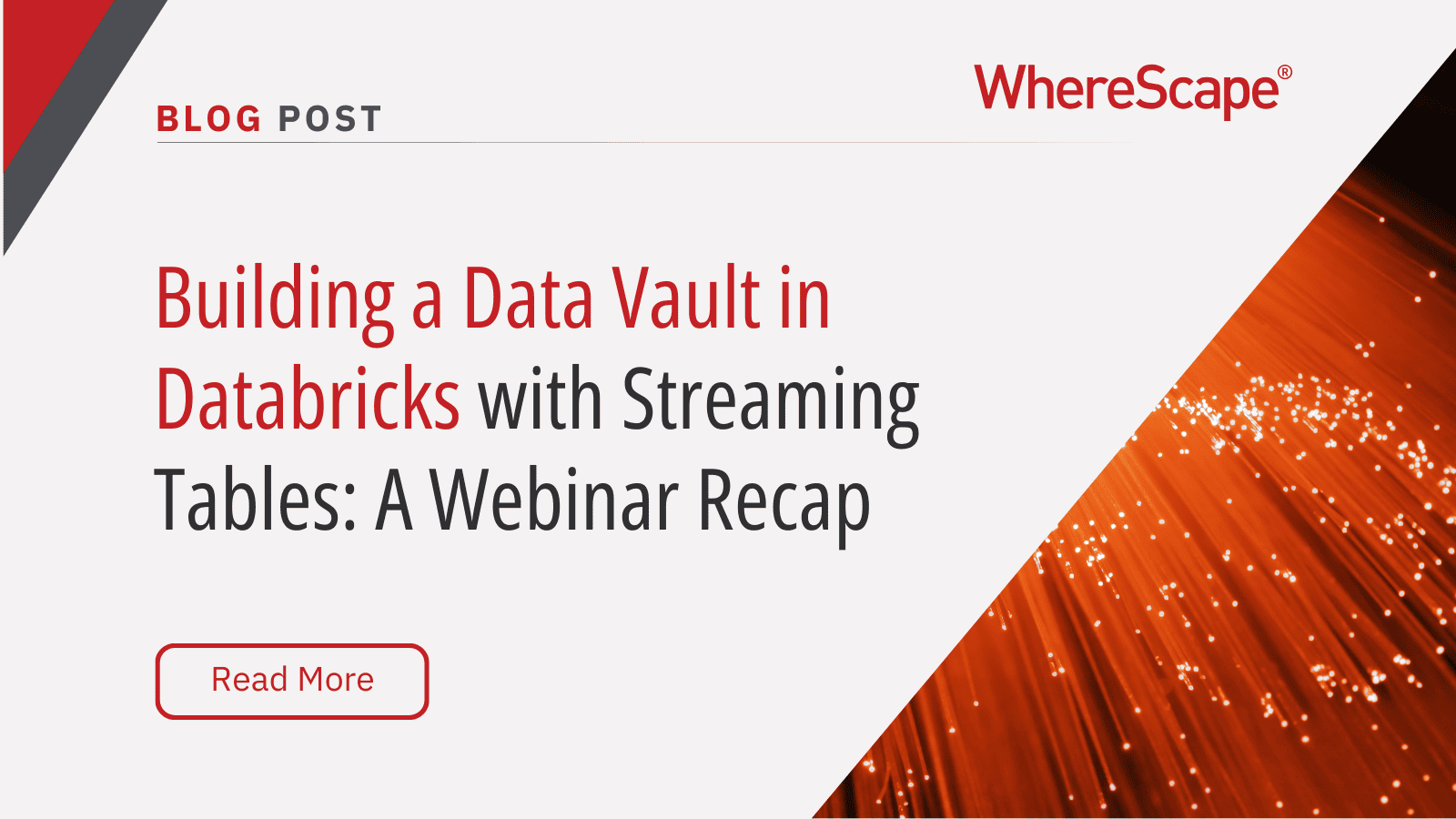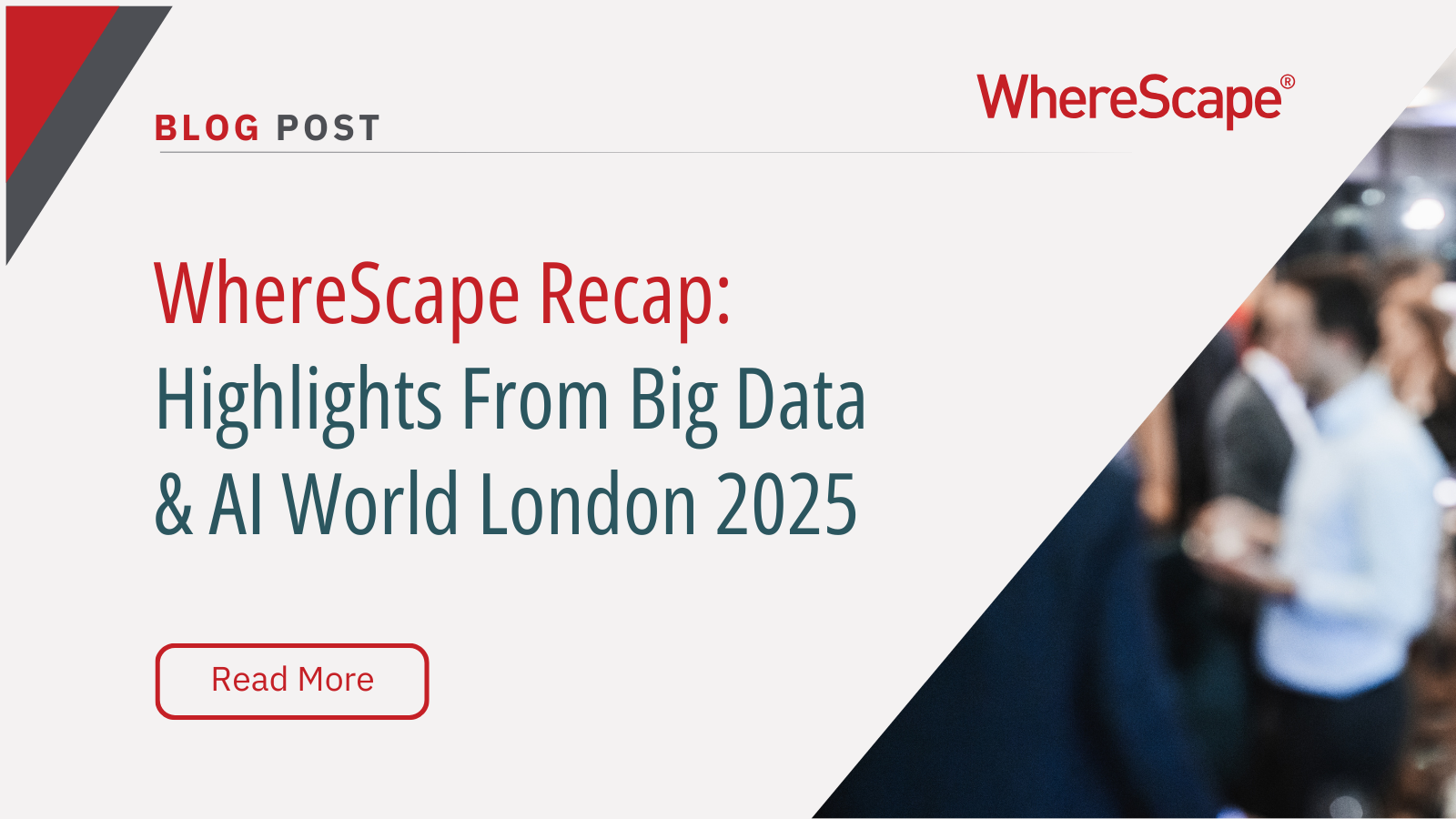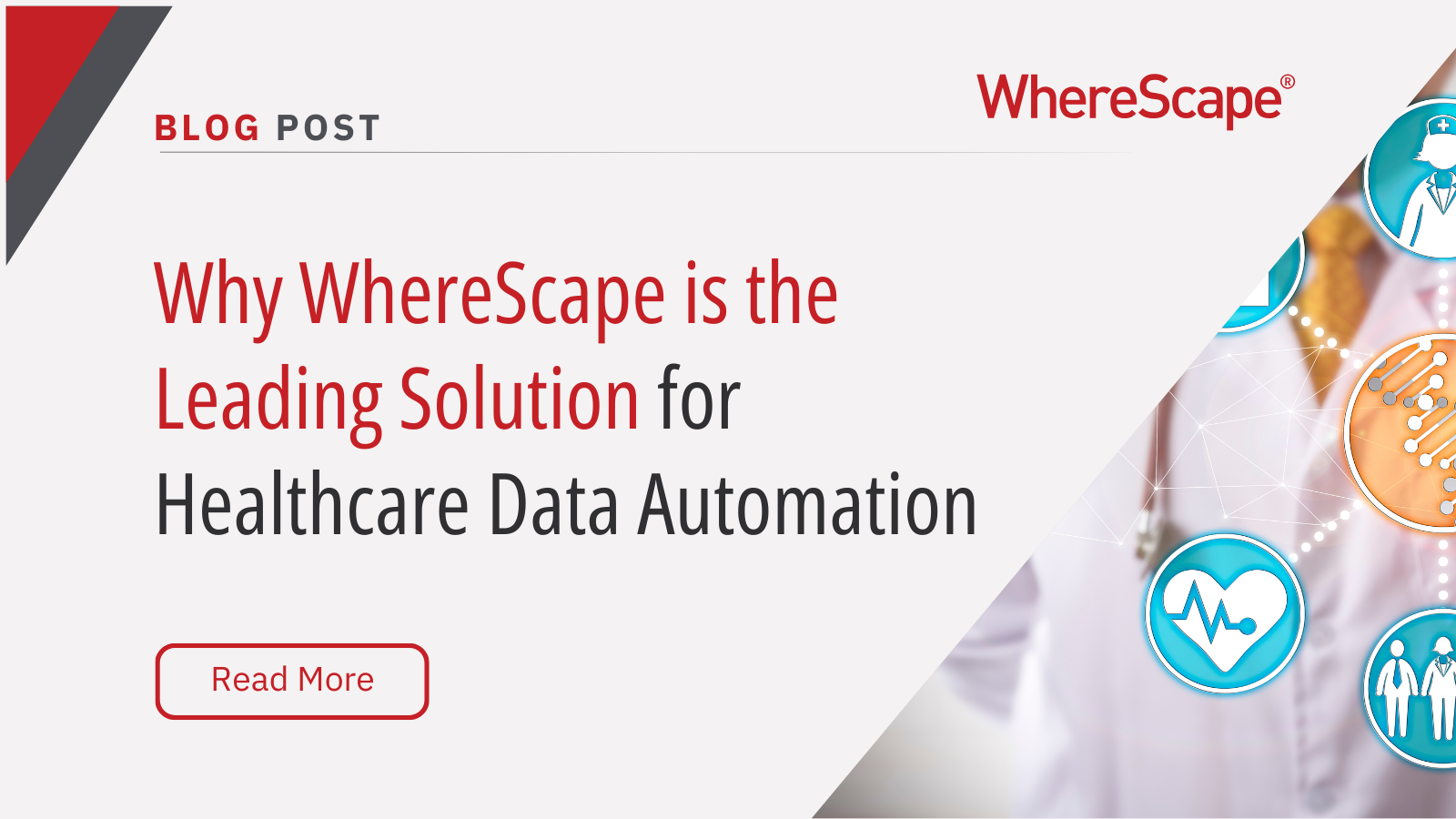Join us for a 60-minute live demo of...
What is a Data Model? Structuring Data for AI Success
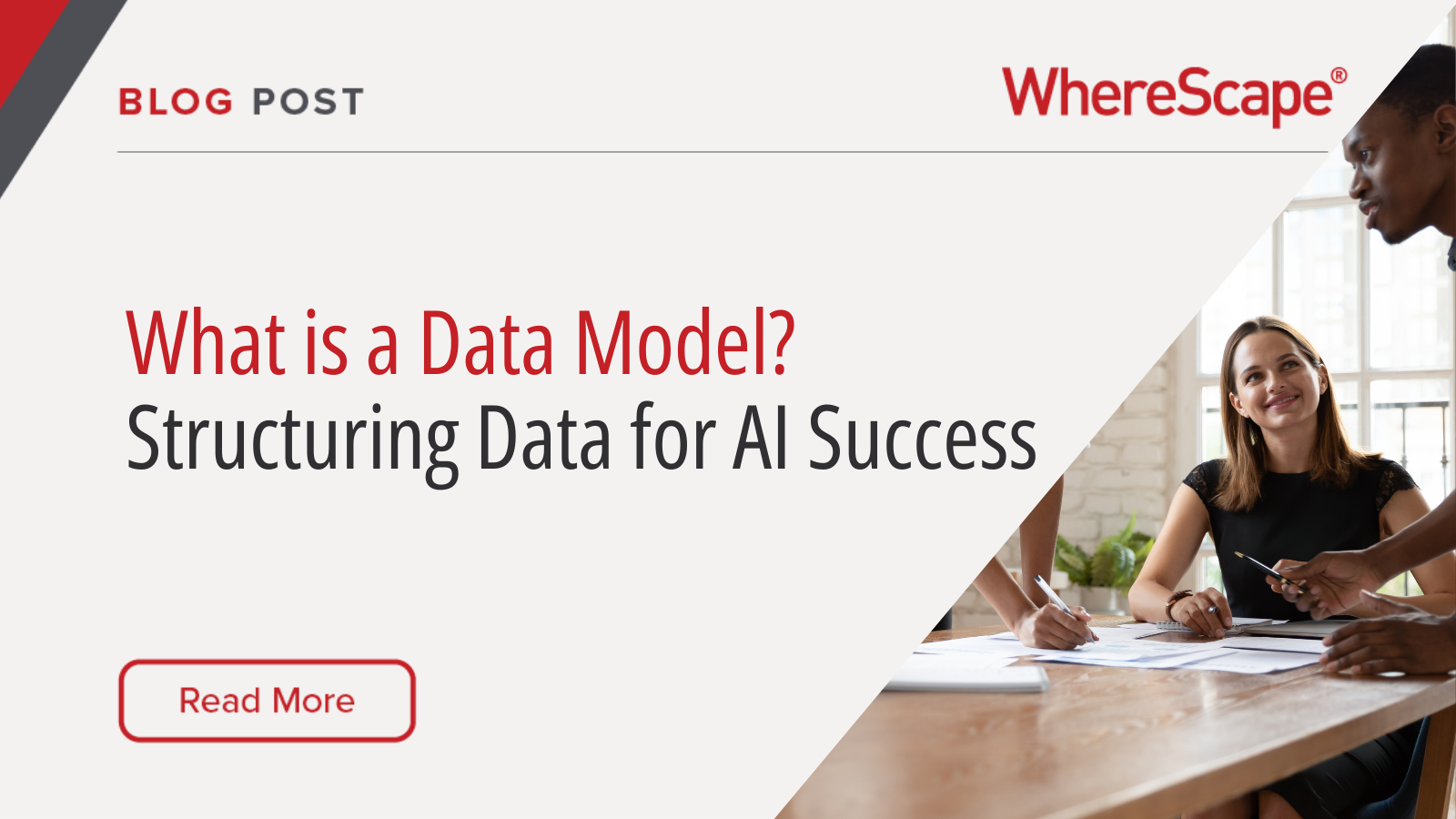
A data model depicts a company’s data organization, standardizing the relationships among data elements and their correspondence to real-world entities’ properties. It facilitates the organization of data for business processes and information systems, offering tools to effectively define and structure data.
Data models help business and technical resources to collaboratively decide on data storage, data access, data sharing, data updating, and how these processes are leveraged across an organization. It also includes the data description, data semantics, and consistency constraints of the data.
In the broader landscape of artificial intelligence (AI), data modeling becomes even more crucial. The success of AI-driven initiatives is tightly woven with the quality and structure of the underlying data. Effective data modeling ensures that AI systems can process and interpret data efficiently, leading to faster and more accurate insights.
Importance of Data Modeling
Data models establish the connections and processes for data within a system, playing a crucial role in unifying enterprise segments like IT, management, and business analysts. Together, they cooperatively design information systems needing well-defined and formatted data. Supporting a consistent, clean data exchange, data models cater to various use cases such as database modeling, information system design, and process development.
In the realm of AI, data modeling serves as a structured roadmap for data—a blueprint that is pivotal for the success of AI systems. Data modeling directly influences how effectively data can be utilized, impacting AI initiatives’ speed, efficiency, and accuracy. It is critical for technical specialists tasked with model implementation, data analysts interpreting data, and managers supervising the overall data workflow.
Types of Data Modeling
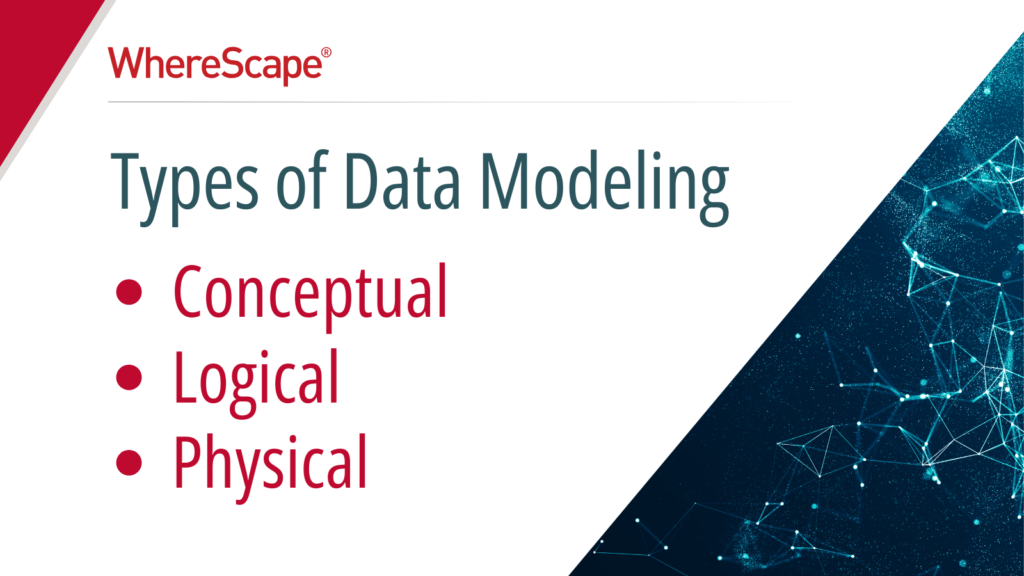
Conceptual Data Model
Also known as a domain model, this type represents the highest level of abstraction. The conceptual data model actively explores and details your high-level, static business structures and concepts, commonly used during the discovery stage of new projects. It includes elements such as basic business rules for application, categories or entity classes of data you intend to incorporate, and any regulations that might restrict your layout options.
Conceptual models are pivotal during the early stages of AI projects, helping identify relationships between different data entities. This approach ensures a solid foundation, enhancing the overall strategic direction of an AI initiative.
Logical Data Model
This type takes into account more relational factors than the conceptual data model does. It describes data elements in detail and facilitates the development of visual understandings of data entities, their defining attributes, keys, and the relationships among them. Data warehousing plans find this model especially useful.
Logical data models provide a detailed view of data structures and relationships without focusing on the technical aspects of data storage or retrieval. These models contribute to more efficient data organization, improving the performance of AI systems by defining precise data relationships.
Physical Data Model
This model stands as the most detailed and typically represents the final step before creating a database. Designers use these models to craft the internal schema of a database, taking into account the specific properties and rules of the database management system (DBMS), including the tables, their columns, and the relationships among them.
Physical data models translate logical data into detailed schemas that guide the creation of the database. The effectiveness of physical data models directly affects AI outcomes, as they dictate the specifics of data storage and management, which influence the system’s performance and response time.
Designers generally use physical data models to create three types of databases: relational models for traditional operational databases, document models for NoSQL and JSON databases, and dimensional models for aggregation and business intelligence data stores, such as data warehouses and data marts.
Different Design and Infrastructure Data Methods
Apart from the three main types of data modeling, organizations can choose from several different design and infrastructure methods to visualize their data model.
Entity Relationship Model
Based on the concept of real-world entities and their relationships, this approach highlights data entities and uses diagrams to illustrate their connections. In translating real-world scenarios into the database model, the ER Model constructs entity sets, relationship sets, general attributes, and constraints to clarify how data should interconnect within a database. The ER Model focuses on entities, their attributes, and the relationships among these entities.
Object-Oriented Data Model
This design method groups entities into class hierarchies based on real-world situations, making complex data points more understandable. Developers often use object-oriented design in the early stages of multimedia technology development. In this approach, they represent information as objects, encapsulating both data and relationships within a single structure known as an object.
Hierarchical Data Model
Hierarchical data models resemble a family tree layout. It represents the data in a tree-like structure in which your data entities look like “parents” or “children” and branch off from other data that shares a relationship with them, with a single parent responsible for each record.
Relational Data Model
This model mirrors the hierarchical data model but adopts a more scientific approach. It maps the connections among various data tables, moving beyond simple parent-child relationships. As one of the most popular data models in database management systems (DBMS), it relies on first-order predicate logic and defines a table as an n-ary relation
Data Modeling Best Practices
Despite the criticality of data modeling, certain pitfalls can lead to suboptimal AI performance. A common misstep is overlooking the need for regular model updates. As data continues to evolve, so should your models. Neglecting to incorporate changes in data trends and patterns can result in outdated and ineffective models. Regular data model reviews help keep them current and relevant.
Another frequent oversight is neglecting data security and privacy considerations while creating models. Given the sensitive nature of data handled by AI systems, robust security measures must be integral to data modeling. Prioritizing data security and privacy can help avoid potential data breaches and non-compliance issues.

Case Study: Admiral Insurance’s Transformation with Automated Data Modeling
Admiral Insurance, headquartered in Cardiff, Wales, with 9,000 employees, faced challenges with its complex data ecosystem because of reliance on manual coding and traditional methodologies. This resulted in delays that hindered strategic and operational efficiency.
Data Model Automation
In response, Admiral partnered with WhereScape, incorporating WhereScape® 3D and WhereScape® RED, Teradata, and Microsoft SQL Server to transition from manual coding to an automated data modeling framework. This move significantly reduced their time to production from a week to under a day and bug fixing from two weeks to just two hours.
Overcoming Data Modeling Challenges
Admiral’s challenges included slow database deployments, outdated documentation, no data lineage, and difficulties in scheduling. WhereScape automation enabled rapid creation and deployment of data structures, automating code generation, and improving responsiveness to end-user requests.
Key Benefits of Automation
- Efficiency: Quick development and learning curve with WhereScape tools, enabling rapid project deployment.
- Collaboration: Improved IT and business collaboration, using prototypes for precise requirement confirmation.
- Adaptability: Platform-agnostic tools facilitated seamless technology migrations, ensuring future-proof data infrastructure.
Looking Ahead
The adoption of WhereScape’s automation tools has transformed Admiral’s IT service delivery, aligning it with the demands of the digital marketplace. The company now plans to expand its data platforms, including SQL Server and Cloud technologies, under WhereScape’s framework. This approach not only supports GDPR compliance but also maintains Admiral’s competitive edge by enabling agile, accurate data management and development.
The case study underscores the power of automated data modeling in modernizing data management practices, demonstrating how Admiral Insurance leveraged technology to streamline operations, enhance collaboration, and future-proof its data infrastructure
Automated Data Modeling
Automated data modeling, as demonstrated by Admiral Insurance’s collaboration with WhereScape, significantly enhances data management efficiency, collaboration, and adaptability. This transformative approach reduces production times, improves project deployment, and ensures a future-proof data infrastructure. Through models such as Conceptual, Logical, and Physical, alongside methodologies like the Entity Relationship and Object-Oriented models, businesses can effectively organize and leverage their data.
Powering AI Success Through Effective Data Modeling
Mastering data modeling is essential for AI success and business growth. No matter your role, the ability to implement efficient data models is key to driving results. WhereScape’s automation tools streamline and enhance your data modeling, ensuring your AI initiatives are built on a solid foundation.
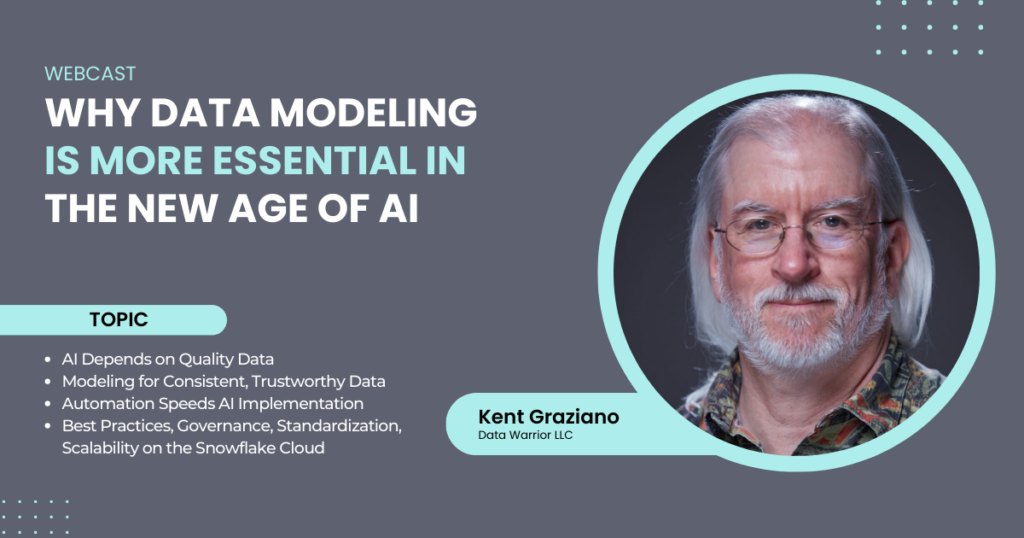
For a closer look at the connection between data modeling and AI, we recommend watching our on-demand webcast, “The Essential Role of Data Modeling in the AI Era,” featuring expert Kent Graziano and WhereScape. This session highlights how robust data models are crucial for providing AI with reliable, structured data, leading to better outcomes and faster implementation.
Ready to unlock the full potential of your data? Book a demo with WhereScape today and see how our solutions can power your AI success.
FAQ
How does structuring data improve business operations?
Structuring data through data models enhances business operations by providing a clear framework that ensures data integrity and aligns with business requirements. It helps in organizing complex data, making it easier to manage and utilize within information systems.
What are the main types of models used in data modeling?
The primary types of models include:
- Conceptual Model: A high-level approach that focuses on identifying key entities and business requirements, setting the stage for more detailed design work.
- Logical Model: This model provides a visual representation of the data, emphasizing relationships between tables and attributes, which is crucial for database design.
- Physical Model: The most detailed level, focusing on the implementation specifics such as database schemas, ensuring the system meets all technical requirements.
Why is a hierarchical data model useful in certain scenarios?
A hierarchical data model proves particularly useful for representing data with a clear parent-child relationship, making it ideal for structuring data in scenarios where relationships between elements nest or tier. This model supports a structured approach to organizing complex data.
How do conceptual and physical models differ in data modeling?
A conceptual model provides a high-level overview that identifies the fundamental entities and relationships, which are essential for understanding business requirements. In contrast, a physical model dives into the specifics of database design, detailing how the system will store, retrieve, and maintain data integrity.
What role do data modeling tools and techniques play in maintaining data integrity?
Data modeling tools and techniques are essential for ensuring data integrity and consistency within information systems. These tools help in creating accurate visual representations of data structures, ensuring that relationships between tables are well-defined and that the system is capable of managing complex data efficiently.
Automating Data Vault in Databricks | WhereScape Recap
Automating Data Vault in Databricks can reduce time-to-value by up to 70%—and that’s why we hosted a recent WhereScape webinar to show exactly how. At WhereScape, modern data teams shouldn't have to choose between agility and governance. That's why we hosted a live...
WhereScape Recap: Highlights From Big Data & AI World London 2025
Big Data & AI World London 2025 brought together thousands of data and AI professionals at ExCeL London—and WhereScape was right in the middle of the action. With automation taking center stage across the industry, it was no surprise that our booth and sessions...
Why WhereScape is the Leading Solution for Healthcare Data Automation
Optimizing Healthcare Data Management with Automation Healthcare organizations manage vast amounts of medical data across EHR systems, billing platforms, clinical research, and operational analytics. However, healthcare data integration remains a challenge due to...
WhereScape Q&A: Your Top Questions Answered on Data Vault and Databricks
During our latest WhereScape webinar, attendees had fantastic questions about Data Vault 2.0, Databricks, and metadata automation. We’ve compiled the best questions and answers to help you understand how WhereScape streamlines data modeling, automation, and...
What is Data Fabric? A Smarter Way for Data Management
As of 2023, the global data fabric market was valued at $2.29 billion and is projected to grow to $12.91 billion by 2032, reflecting the critical role and rapid adoption of data fabric solutions in modern data management. The integration of data fabric solutions...
Want Better AI Data Management? Data Automation is the Answer
Understanding the AI Landscape Imagine losing 6% of your annual revenue—simply due to poor data quality. A recent survey found that underperforming AI models, built using low-quality or inaccurate data, cost companies an average of $406 million annually. Artificial...
RED 10: The ‘Git Friendly’ Revolution for CI/CD in Data Warehousing
For years, WhereScape RED has been the engine that powers rapidly built and high performance data warehouses. And while RED 10 has quietly empowered organizations since its launch in 2023, our latest 10.4 release is a game changer. We have dubbed this landmark update...
The Assembly Line for Your Data: How Automation Transforms Data Projects
Imagine an old-fashioned assembly line. Workers pass components down the line, each adding their own piece. It’s repetitive, prone to errors, and can grind to a halt if one person falls behind. Now, picture the modern version—robots assembling products with speed,...
The Role of Clean Data in AI Success: Avoiding “Garbage In, Garbage Out”
Co-authored by infoVia and WhereScape Artificial Intelligence (AI) is transforming industries across the globe, enabling organizations to uncover insights, automate processes, and make smarter decisions. However, one universal truth remains: the effectiveness of any...
What is a Cloud Data Warehouse?
As organizations increasingly turn to data-driven decision-making, the demand for cloud data warehouses continues to rise. The cloud data warehouse market is projected to grow significantly, reaching $10.42 billion by 2026 with a compound annual growth rate (CAGR) of...
Related Content
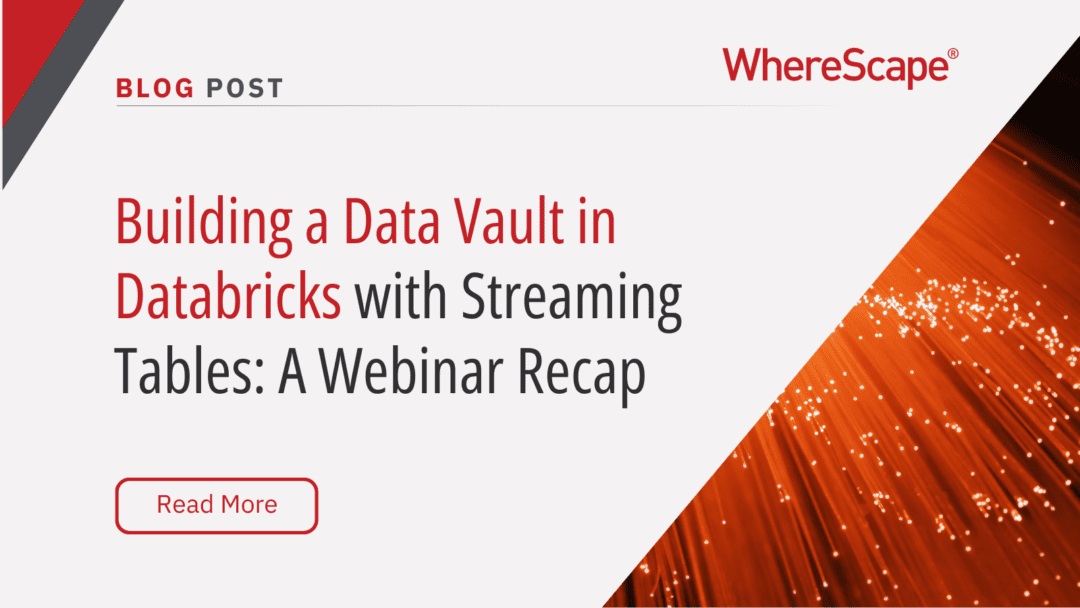
Automating Data Vault in Databricks | WhereScape Recap
Automating Data Vault in Databricks can reduce time-to-value by up to 70%—and that’s why we hosted a recent WhereScape webinar to show exactly how. At WhereScape, modern data teams shouldn't have to choose between agility and governance. That's why we hosted a live...
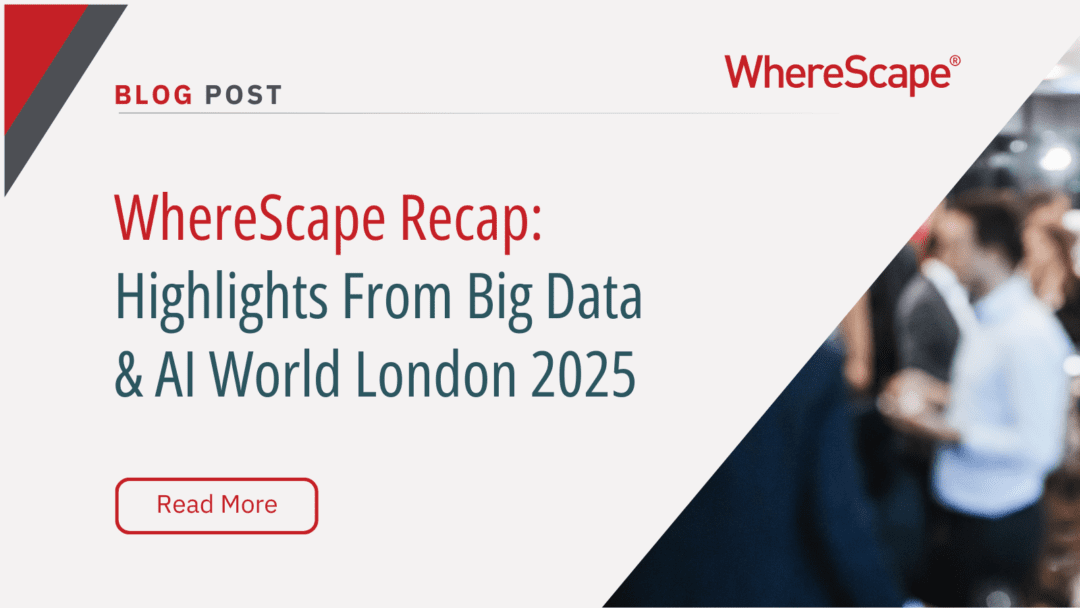
WhereScape Recap: Highlights From Big Data & AI World London 2025
Big Data & AI World London 2025 brought together thousands of data and AI professionals at ExCeL London—and WhereScape was right in the middle of the action. With automation taking center stage across the industry, it was no surprise that our booth and sessions...
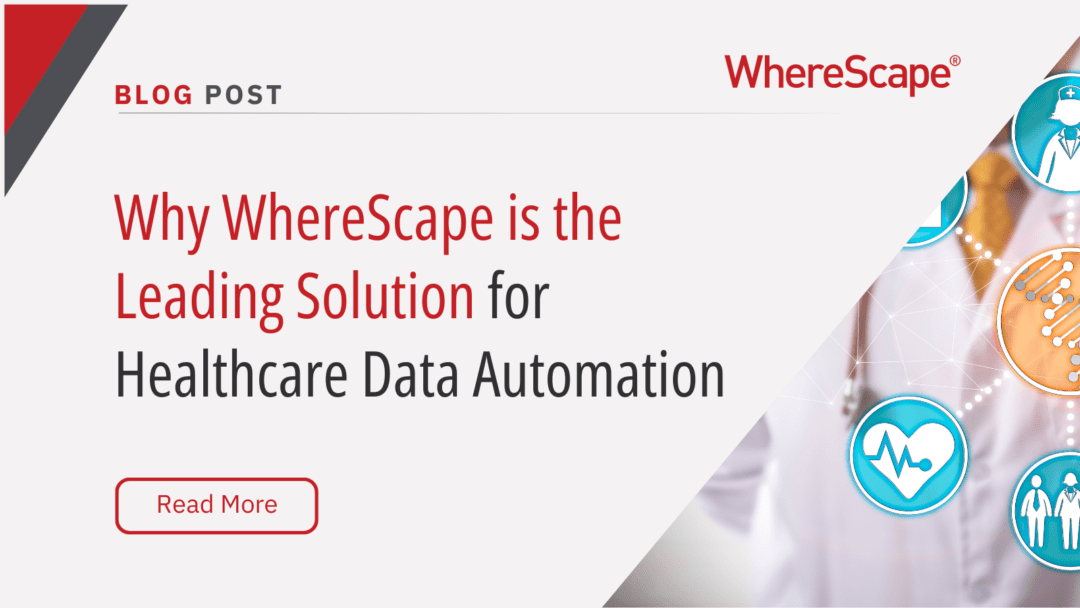
Why WhereScape is the Leading Solution for Healthcare Data Automation
Optimizing Healthcare Data Management with Automation Healthcare organizations manage vast amounts of medical data across EHR systems, billing platforms, clinical research, and operational analytics. However, healthcare data integration remains a challenge due to...
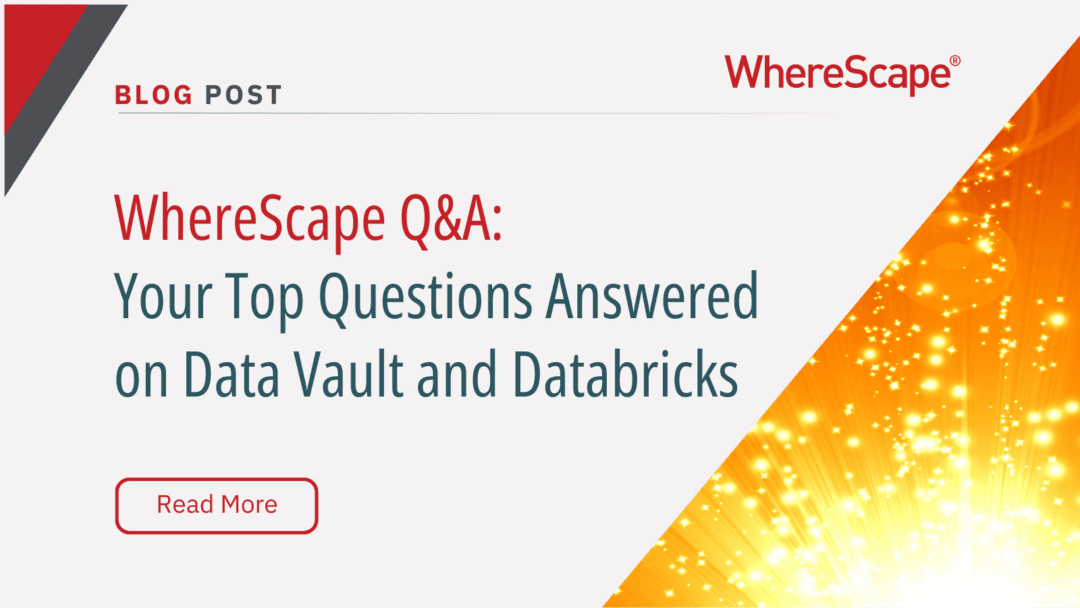
WhereScape Q&A: Your Top Questions Answered on Data Vault and Databricks
During our latest WhereScape webinar, attendees had fantastic questions about Data Vault 2.0, Databricks, and metadata automation. We’ve compiled the best questions and answers to help you understand how WhereScape streamlines data modeling, automation, and...


